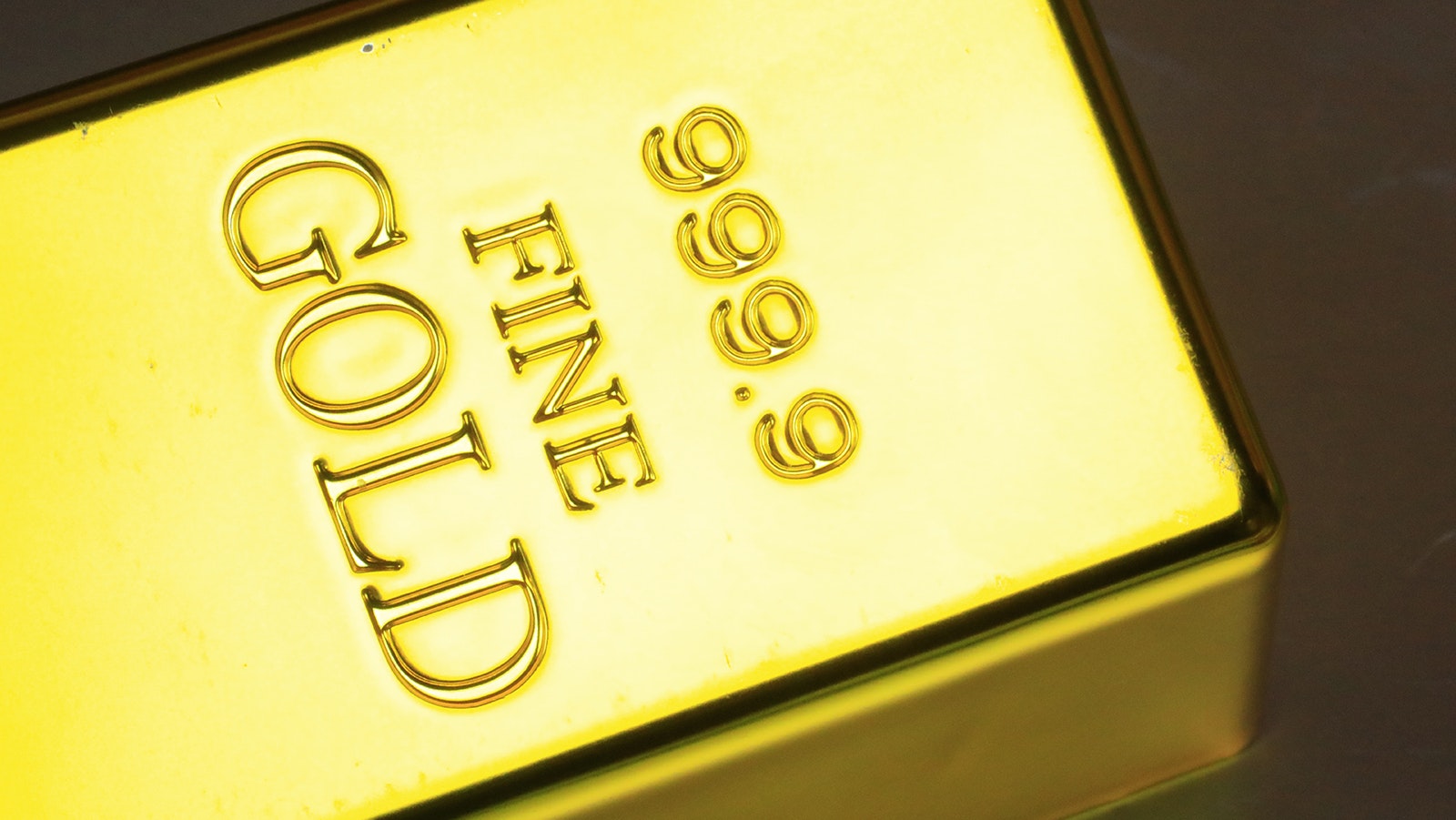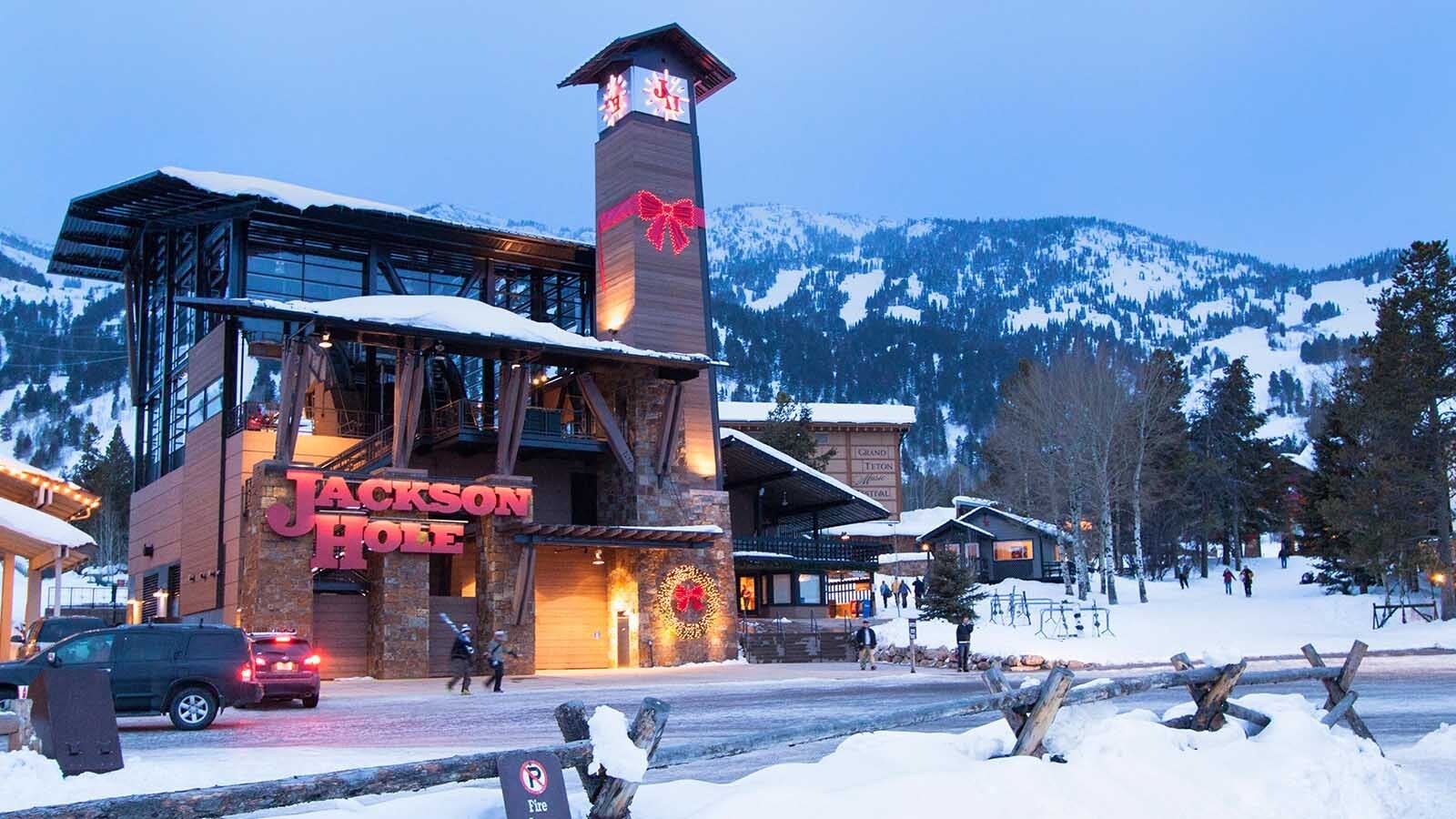Fort Knox has earned a reputation as the world’s most secure repository of gold.
Perhaps it one day will have a rival in Wyoming.
Scottsdale Mint CEO Josh Phair told state lawmakers Thursday during testimony on a bill that would allow Wyoming to accept certain tax payments in gold or silver that he has bought the building that used to house the Caspar Star Tribune.
There, “we’re building what would be, essentially, a private Fort Knox,” Phair said. “That building was high-density concrete and, while it didn’t fit the bill for a lot of other companies, it was perfect for us.”
This new Fort Knox in Wyoming will be home for a foreign trade zone operator with imports and exports for mining companies all around the world, Phair said.
He also offered to help Wyoming as it moves to accept precious metals as tax payments, to better understand all the ins and outs of taking gold and silver as legal tender.
“We understand metals,” he told lawmakers. “That’s what we do. We work with banks, we work with governments. About half of our product goes overseas.”
Senate File 101 In A Nutshell
Wyoming lawmakers had a lot of questions for Phair as they work through Senate File 101.
The bill, sponsored by Sen. Bob Ide, R-Casper, is an amendment to one approved during the Wyoming Legislature’s 2022 session, the Wyoming Legal Tender Act, which removed taxes from gold and silver, and spelled out that they are legal tender recognized by both the Wyoming and U.S. constitutions.
The amendment Ide has brought would require the state to prepare to accept payments of mineral taxes in gold or silver. It also requires the Wyoming treasurer to provide exchange rates for that purpose and to hold and invest in gold.
Forward Looking
The move also helps prepare Wyoming in case of an unforeseen financial collapse, Ide said.
“The chances of that happening are probably slim to none right now,” he said. “But what we really want to do is get things set up for the treasurer to be prepared. If, for whatever reason, we have a calamity in the financial markets, we have alternatives to trade with.”
Gold could give the state an asset that can be a hedge against high exposure to Federal Reserve Note dollars, Ide added.
“(Their) value has been recently plummeting,” he said. “Everybody’s aware of that, I’m sure, the ravages of inflation right now.”
Ide envisions the State Treasurer’s office working with outside experts, such as precious metals depositories, to establish the process of accepting mineral tax payments in gold or silver.
“If, at a later time, the state wishes to handle more of the responsibility directly, rather than overseeing them, it could do so,” Ide said. “However, at the onset, it’s simply more efficient to enlist outside experts and service providers and SF 101 enables the state to do so.”
Gold, Ide added, has stood the test of time and has retained its value over hundreds of years.
“Wyoming can get out ahead of today’s ongoing monetary problems before they expand into a full-blown crisis,” Ice said. “It’s our duty to take some initial steps in this direction, so that our state is resilient and prepared.”
Pesky Questions
But there were many questions about doing this from lawmakers, state officials, and residents who testified Thursday for the House Revenue Committee.
Could there be problems with counterfeit gold, such as gold-wrapped tungsten? Who would have the responsibility for monitoring that?
Would the need for verification require some kind of monitoring equipment in every county? How much would that cost?
And what about security issues when it comes to accepting precious metals for tax payments? Guards might be needed in every county to prevent gold or silver from being stolen.
Department of Revenue Director Brenda Henson told lawmakers that tax payments to her offices are all audited. She suggested that presents challenges when it comes to accepting gold and silver for tax payments.
“As stated, many states have adopted similar language to the Wyoming Legal Tender Act,” she said. “In my research, and visiting with my similarly positioned folks in other states, that language is in their statues as well.”
But she has yet to find a state that’s actually accepting any legal tender other than U.S. currency for taxes.
“That is not happening in any state that I have found to date,” Henson said. “So, if it is the will of the Legislature to have the Department of Revenue receive taxes, I look at this very similarly to cryptocurrency.
“If we are going to receive taxes in a form that is other than U.S. currency, we need to investigate that, and we need to take the time to ensure that the treatment of those taxpayer dollars is held very seriously.”
Gold Volatility
Patrick Fleming, chief investment officer for the Wyoming Treasurer’s Office, is concerned about the ups and downs in gold’s value. It’s a commodity, and that value is rising and falling all the time.
“Gold is a volatile instrument,” he said. “The volatility is 13, 15%.”
Accepting gold and silver would likely require some kind of bid spread, he suggested, to eliminate risks that the government would suffer a loss in value on gold payments. For companies paying in gold, that would likely be experienced as a premium.
“My question is, how many people would be willing to pay the extra premium in a bid offer?” he asked, suggesting it is highly unlikely. “It doesn’t make sense. So those are just, so many different issues that you have.”
Fraud, meanwhile, is a huge issue with gold payments, Fleming suggested.
“Citigroup is just in a fraud case right now,” he said. “And they’re a 300-year-old company. There was a massive fraud in the delivery of it. I don’t care if the person is bonded or what have you. It happens all the time.
“Are we going to be able to make sure that we actually have all these securities there?”
Wyoming’s Retirement System could already buy gold as an investment if it wants to, but doesn’t, Fleming added.
“Gold does not pay interest,” he said. “You can lend it, but there’s all kinds of issues with lending. So the investment funds committee has decided not to own gold because of some of those negative connotations.”
Besides, in the event of a cataclysm that undoes the world’s existing money systems, gold won’t be what people really want, he said.
“It’s bullets,” Fleming said. “Bullets and food. That’s what happens in times of stress, and you, there are times that you can go back and see in history what actually happened, because you’re not going to be able to pay for a loaf of bread with a gold coin.”
Central Banks, Tesla Buying Gold
Phair, meanwhile, said trends are already pointing toward gold.
“Last year, the World Gold Council said it was the largest increase in Central Bank buying of gold since 1950,” he said.
Meanwhile, large institutions like Elon Musk’s Tesla and Peter Thiel’s Palantir Technologies have added physical gold bars to their inventory and stashed them in a private vault in the U.S.
“Gold is the only other asset, really, that people are adding right now around the world to diversify,” he said. “I think in a few years, that we’re going to look back and say that Wyoming had the option of getting out in front, and I think the economic impact for the state is dramatic.”
Phair told lawmakers he moved his company from Arizona after an extensive analysis that included a look at special economic zones around the world. The legal tender bill the Cowboy State passed last year was among his deciding factors.
He didn’t know at the time that Wyoming had any interest in accepting tax payments in gold or silver, but his company is focused on manufacturing gold coins for governments around the world.
He views Senate File 101 as a “really incredible message” to the world that Wyoming is open for business.
“We are going to be a wonderful place to operate for manufacturing,” he said. “To be here for people, to be in a really, strong environment.”
Processes Already Exist For Gold Handling
Phair also offered lawmakers information about questions that were being asked during the hearing on Senate File101.
“When metal comes to us, we first authenticate it,” he said. “So if someone wants to send in what they believe is a million dollars, it’s sent into our facility and we’re testing it for weight and purity.”
After the value has been settled on, Phair asks when they want to lock in a price.
“A lot of times people work off of what’s called a fixed future price,” he said. “So we say we’d like to sell that on tomorrow’s fix, which gives the option for the buyer of the meal to either hedge it, or a lot of these companies like Palantir, they’re not heating their gold. They’re putting it on their balance sheets. Central Banks have gold on their balance sheets, and they do not want to hedge it with the U.S. dollar.”
Where The Bill Stands
Senate File 101 unanimously passed the House Revenue Committee. It will have make it to the House floor for consideration by Friday to continue the process of passing the Legislature.





